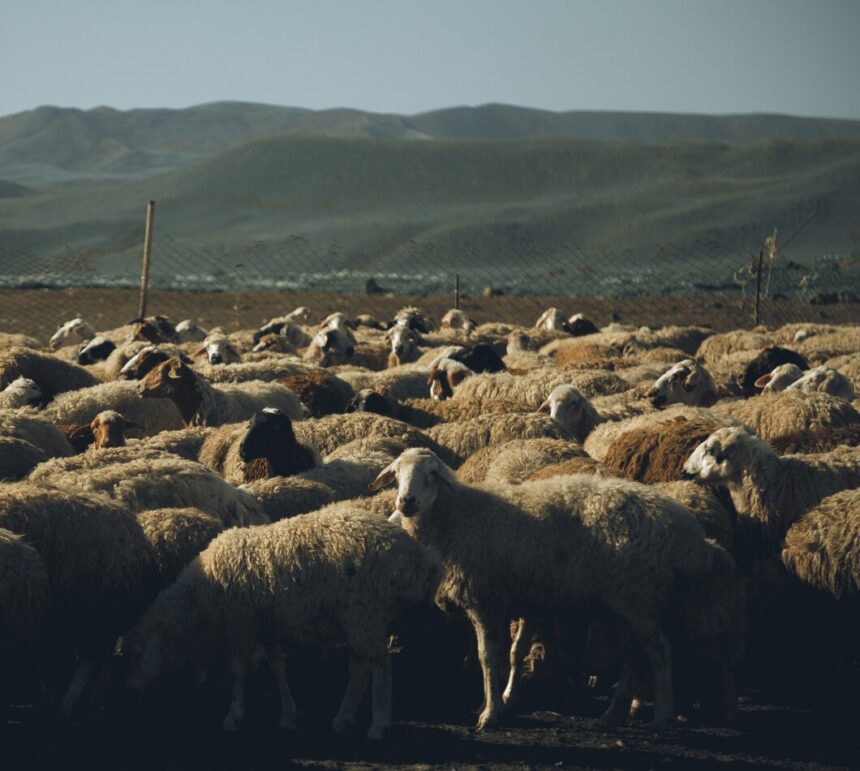Sheep farming is a popular agricultural activity in South Africa, providing wool, meat, and milk to local and international markets. However, successful sheep farming requires careful planning and management. Farmers often face challenges that can hinder productivity and profitability. Understanding common mistakes and implementing effective solutions can significantly improve outcomes. Here are 10 common mistakes in sheep farming and how to avoid them.
1. Poor Breeding Management
Many farmers fail to plan their breeding programs effectively, leading to low fertility rates or poor-quality offspring. Breeding without considering genetics and seasonality often results in lambs born in unfavorable conditions. Farmers should select high-quality breeding stock and plan breeding seasons to coincide with optimal weather conditions and forage availability. Regularly monitor rams and ewes for fertility and health issues.
2. Neglecting Nutrition
Sheep require a well-balanced diet to thrive, but some farmers rely solely on grazing without supplementing with additional feed. This can lead to malnutrition, low growth rates, and poor reproduction. Farmers should provide high-quality forage, mineral licks, and supplementary feeds, especially during droughts or when pasture quality is poor. Consult a nutritionist to develop a diet plan tailored to the specific needs of the flock.
3. Inadequate Housing and Shelter
Exposing sheep to harsh weather conditions can lead to stress, disease, and lower productivity. Many farmers overlook the importance of providing proper housing and shelter. Construct simple, cost-effective shelters that protect sheep from extreme heat, rain, and cold. Ensure adequate ventilation and space to prevent overcrowding and respiratory issues.
4. Poor Disease Control and Prevention
Failure to implement a robust disease control program can result in significant losses. Common diseases such as foot rot, pneumonia, and internal parasites are often neglected until they become severe. Farmers should establish a regular vaccination schedule, implement deworming programs, and conduct routine health checks. Maintain a clean environment and quarantine new sheep before introducing them to the flock.
5. Overgrazing
Overgrazing depletes pasture quality and leads to soil erosion, ultimately reducing the nutritional value available to sheep. Farmers sometimes overstock their land, ignoring its carrying capacity. Practice rotational grazing to allow pastures to recover and maintain their productivity. Use soil testing and pasture management techniques to ensure sustainable grazing.
6. Neglecting Lamb Care
Lambs are particularly vulnerable in their early stages, and many farmers fail to provide adequate care. High mortality rates are often due to poor hygiene, inadequate nutrition, or lack of protection from predators. Ensure lambs receive colostrum within the first few hours of birth. Provide clean bedding, protect them from extreme weather, and monitor their growth and health regularly.
7. Ignoring Wool Quality
For farmers involved in wool production, neglecting the quality of wool can reduce profits. Dirty or poorly shorn wool often fetches lower prices at market. Regularly shear sheep using proper techniques to avoid cuts and ensure a uniform fleece. Keep wool clean by providing dry, clean environments and handling sheep with care during shearing.
8. Poor Record-Keeping
Many farmers fail to maintain accurate records of their flock, leading to inefficiencies in breeding, feeding, and disease management. Without records, it becomes difficult to track the performance of individual sheep or the profitability of the operation. Keep detailed records of breeding, health treatments, feeding programs, and financial transactions. Use farm management software to streamline this process.
9. Lack of Predator Control
Predation is a significant issue in South Africa, with predators like jackals and caracals posing a constant threat. Some farmers neglect effective predator management strategies, leading to heavy losses. Install predator-proof fencing, use guard animals like dogs or alpacas, and regularly inspect fences for damage. Implement non-lethal deterrents where possible to balance conservation and farming.
10. Failure to Adapt to Market Trends
Some farmers focus solely on traditional markets without exploring new opportunities or diversifying their products. This can limit income potential and expose the farm to market fluctuations. Stay informed about market trends and consumer demands. Diversify by producing value-added products like cheese or woolen goods, or explore niche markets such as organic lamb or specialty wool.
Sheep farming in South Africa offers immense potential for profitability and sustainability when managed effectively. Avoiding these common mistakes requires a proactive approach, attention to detail, and a willingness to adapt to new practices and technologies. By focusing on proper breeding, nutrition, disease control, and market awareness, South African farmers can ensure their sheep farming operations thrive in the competitive agricultural landscape.
Join 'Farmers Mag' WhatsApp Channel
Get the latest Farming news and tips delivered straight to your WhatsApp
CLICK HERE TO JOIN






